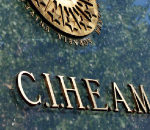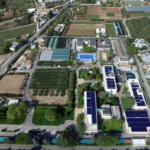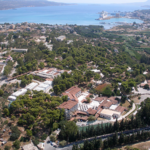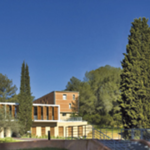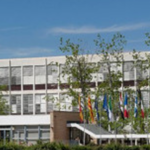Let us cultivate the future with traceable, sustainable, supportive and inclusive agriculture.
Context:
Project to support the agroecological transition in Lebanon through the promotion of agroecology and the facilitation of access to national and international markets.
Lebanon has been facing a severe crisis since the end of 2019, on economic (with growing inflation), food (85% of food needs are imported), social (with increasing intercommunal tensions and 1.5 million Syrian refugees), and environmental levels (with anarchic exploitation of natural resources and unregulated use of agricultural inputs).
The agricultural sector in Lebanon represents almost 5% of the Gross Domestic Product (GDP) and employs around 12% of the active population. In the poorest regions of the country, such as Akkar and the Bekaa, agricultural-related activities can represent up to 80% of the local GDP.
ARADINA aims to support and accompany, in a context of climatic, security, and socioeconomic crises, the agroecological transition in Lebanon for a larger and healthier food production, a more efficient management of natural resources, and a more inclusive and sustainable economic development.
This transition seeks to develop sustainable, traceable, fair, and job-generating agricultural value chains, particularly benefiting vulnerable populations in rural areas.
The project includes three components:
1️⃣ Defining and implementing agroecological practices and providing the necessary support for their adoption at the household farming level;
2️⃣ Supporting SMEs and cooperatives to create jobs and facilitate access to markets for products derived from agroecology;
3️⃣ Capitalizing on knowledge and implementing advocacy for agroecology in Lebanon.
The project aims to support 2,500 farmers (at least 30% women) in the agroecological transition, increase the income of affected farming households, and support 145 SMEs/cooperatives.
It also aims to increase the share of agroecological products among consumers, reduce agricultural water consumption by 20%, and enhance climate resilience for at least 5,000 people.
The project’s funding recipient is CIHEAM Montpellier, which will act as project lead, in consortium with the NGOs Fair Trade Lebanon (FTL) and Action Against Hunger (ACF Spain).
CIHEAM Montpellier will ensure project coordination and the implementation of the first component, which will involve defining relevant agroecological practices and training farmers by incorporating socio-behavioral factors.
CIHEAM Montpellier will also establish community infrastructure (three nurseries, one composting unit, and three processing units), as well as install 20 hectares of drip irrigation networks.
FTL will lead the second component, which aims to strengthen the technical capacity of at least 100 SMEs and 45 cooperatives to market agricultural products.

MORE INFORMATION
Contacts
- Project Manager: Hatem Bellouchette - Contact: belhouchette@iamm.fr
- Project assistant: Anne Cobacho- Contact: cobacho@iamm.fr
Partners:
- Fair Trade Lebanon
- Action contre la Faim (ACF Spain)


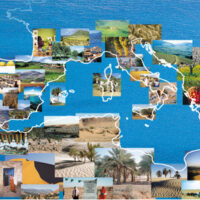 CIHEAM MontpellierOur vision is that of a Mediterranean basin characterised by a spirit of cooperation.
CIHEAM MontpellierOur vision is that of a Mediterranean basin characterised by a spirit of cooperation.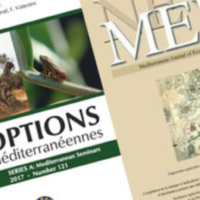 CIHEAM publicationsOur publications and communication tools aim to facilitate decision-making processes for political, economic and agricultural actors in the Mediterranean region
CIHEAM publicationsOur publications and communication tools aim to facilitate decision-making processes for political, economic and agricultural actors in the Mediterranean region News and events
News and events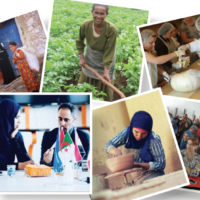 Press review (Scoop.it)
Press review (Scoop.it) Master programmesThe CIHEAM Montpellier stands for both personalised accompaniment and international openness.
Master programmesThe CIHEAM Montpellier stands for both personalised accompaniment and international openness.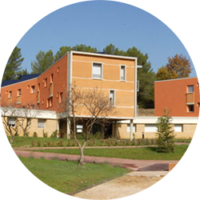 Campus & student lifeSince 1962, almost 95% of our foreign students have been granted accommodation on site.
Campus & student lifeSince 1962, almost 95% of our foreign students have been granted accommodation on site.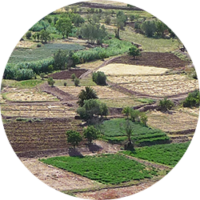 Doctoral platformShaping the scientists of tomorrow through research training… A natural commitment of the CIHEAM Montpellier
Doctoral platformShaping the scientists of tomorrow through research training… A natural commitment of the CIHEAM Montpellier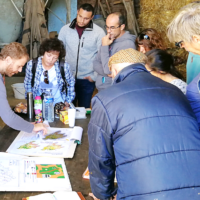 ProjectsOur research and cooperation projects are tools for inclusive development, they take into account the populations and rural and coastal territories of the Mediterranean.
ProjectsOur research and cooperation projects are tools for inclusive development, they take into account the populations and rural and coastal territories of the Mediterranean.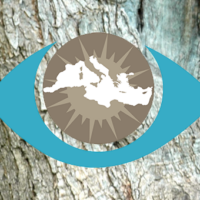 Mediterranean online catalogueA unique Documentation Center on the Mediterranean,
invested in sharing knowledge.
Mediterranean online catalogueA unique Documentation Center on the Mediterranean,
invested in sharing knowledge. Scientific productionThe scientific production of the CIHEAM Montpellier is the fruit of collaborations by our lecturer-researchers, associated experts, students and research partners.
Scientific productionThe scientific production of the CIHEAM Montpellier is the fruit of collaborations by our lecturer-researchers, associated experts, students and research partners. Becoming partnersCreating partnerships is part of the genetic make-up of the CIHEAM Montpellier... Join one of its projects or study programmes, support its actions.
Becoming partnersCreating partnerships is part of the genetic make-up of the CIHEAM Montpellier... Join one of its projects or study programmes, support its actions.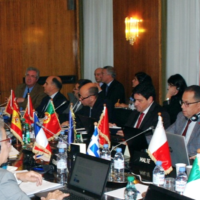 Ministerial meetingsThrough the Ministerial, CIHEAM contributes to the construction of a dialogue between the Mediterranean countries around questions relating to agriculture and the rural world.
Ministerial meetingsThrough the Ministerial, CIHEAM contributes to the construction of a dialogue between the Mediterranean countries around questions relating to agriculture and the rural world.